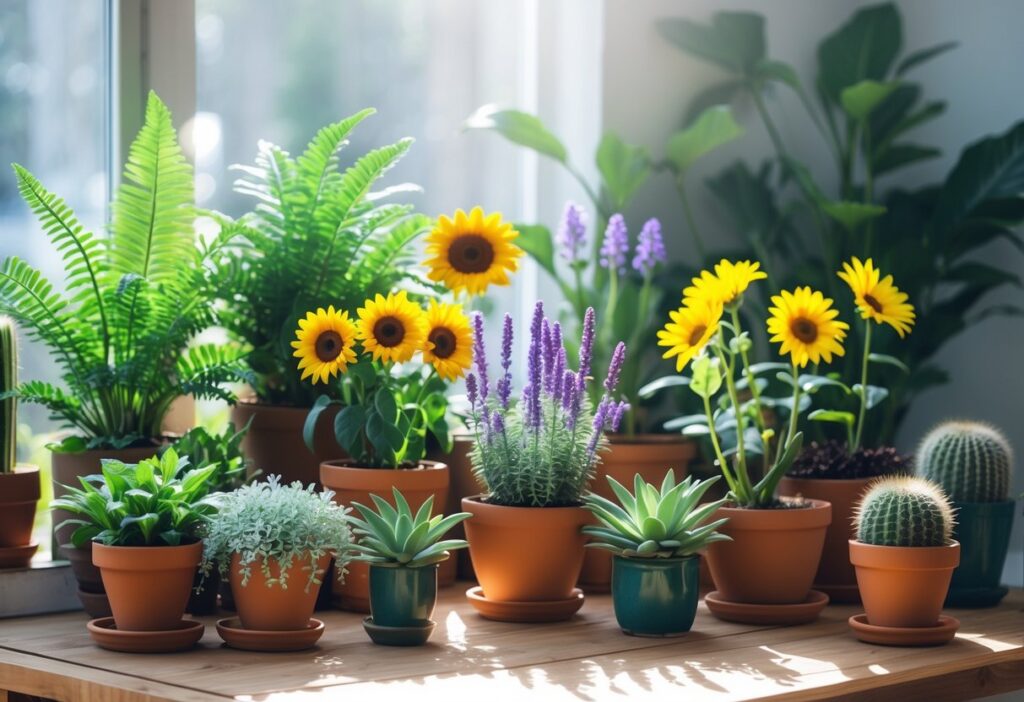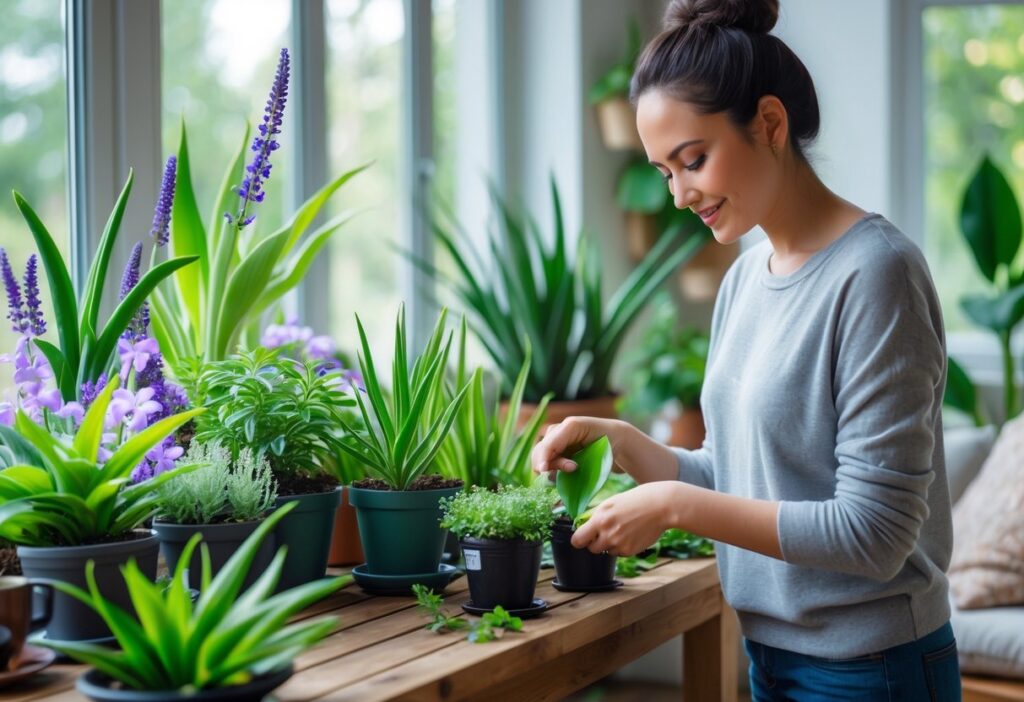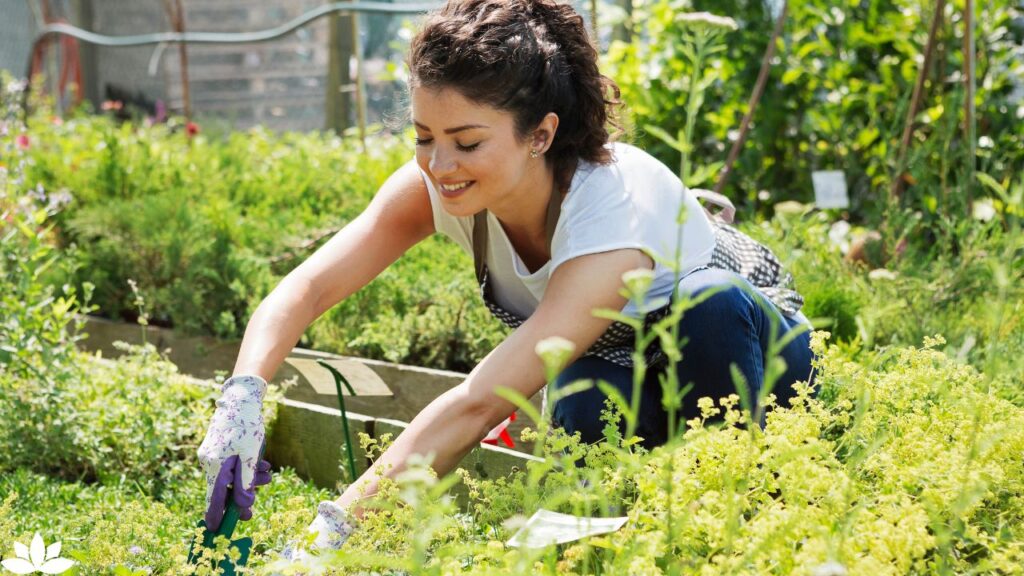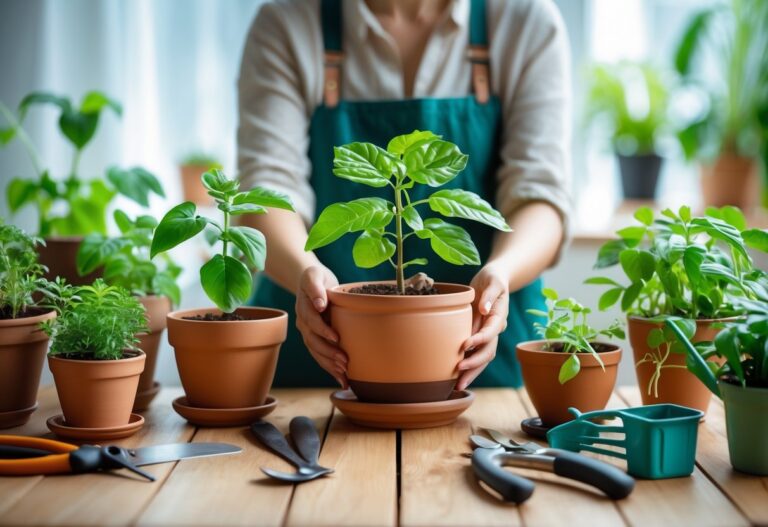Mood gardening is all about picking plants that resonate with how you’re feeling—or maybe how you’d like to feel. Certain plants can calm your mind, boost your mood, or even help you focus, depending on what you need most that day.
By choosing the right plants, you end up with a space that supports your mental well-being in a pretty organic way.

Maybe you’re stressed and want something that takes the edge off, or maybe bright, lively flowers are what get you going in the morning. Matching plants to your emotional state lets you create a garden that works with you, not against you.
It turns your space—inside or out—into something that feels like a real emotional refuge, not just a collection of pots.
How Plants Influence Emotional Well-Being
Plants can really change how you feel. They help dial down stress, lift your mood, and give you a sense of calm that’s hard to fake.
There’s something about the act of caring for a plant, or just being around green things, that brings out these little biological responses—less cortisol, more peace. It’s not just in your head, either; there’s actual science behind it.
The Science Behind Mood Gardening
Your brain seems to chill out around plants, with stress hormones like cortisol dropping. When you’re gardening or just tending to a few houseplants, your body might even release chemicals that help you feel more focused and upbeat.
Some studies suggest that interacting with plants can sharpen your mind and ease anxiety. Touching soil, seeing green, catching a whiff of something floral—it all wakes up your senses in a good way.
Gardening nudges you toward mindfulness, too. When you’re focused on a plant, worries tend to fade into the background.
Nature Connection and Emotional Health

Getting in touch with nature, even if it’s just a few potted herbs, can make you feel more grounded. Green spaces have this knack for bringing you back to the present moment.
Spending time outside or just bringing some greenery indoors does wonders for stress and mood. It’s like a reset button for your emotions.
Even just watching leaves sway or flowers open can slow your heart rate and make you feel a bit more at peace. I mean, who doesn’t need that?
Indoor Plants for Mental and Emotional Balance
Indoor plants are probably the easiest way to get a little mood boost every day. Snake plants, lavender, and pothos are great choices—they even clean the air while they’re at it.
Having a few plants in your workspace or living room can help you focus and get creative. Plus, taking care of them gives you a reason to slow down and be present for a minute.
Colorful plants or those with nice scents just make a space feel more inviting. It’s a small thing, but it really does make emotional health feel more doable.
Choosing the Right Plants for Your Emotional State

Picking plants that match your mood can actually help you manage how you feel, think, and even connect with others. Some plants are like little happiness boosters, while others help you focus or just chill out.
Gardening can even be a way to feel more connected to the people around you, if that’s something you’re after.
Uplifting Plants for Happiness and Positivity
For a quick happiness hit, go for plants with bright flowers or a generally cheerful vibe. Sunflowers and marigolds are hard to beat for sheer color and energy.
Lavender is a classic. Its gentle scent is known to calm nerves and balance your mood. Snake plants and pothos are super easy to keep alive, and they make any room feel a bit more welcoming.
Watching your plants thrive can actually boost your self-esteem. There’s something about seeing that growth that just feels good.
Herbs and Scents for Focus and Productivity
If you’re hoping to get more done, some herbs can give you a mental edge. Rosemary is famous for helping with memory and cognitive function—worth a try during your next study session.
Basil and mint have strong, fresh scents that wake you up and keep your mind clear. They’re easy to grow, too, even if you don’t have much space.
Having these plants around while you work or study can make it easier to stay on task. Sometimes, it’s the little things that make a difference.
Gardening for Mindfulness and Relaxation
Honestly, just the act of gardening is a mindfulness practice in itself. When you’re tending to lavender or chamomile, you can’t help but slow down and pay attention.
Watering, pruning, and just watching plants grow becomes its own kind of peaceful ritual. It’s a surprisingly effective way to ease tension.
Even simple things like touching the soil or catching a plant’s scent can help you feel grounded. Plants with soft leaves or calming aromas really deepen that sense of relaxation.
So, if you’re looking for a way to feel a little better, maybe start with a plant or two. Your mood—and your space—might just thank you.
Fostering Social Bonds and Community Through Plants

Gardening can connect you with others in ways you might not expect. Ever joined a community garden or swapped plants with a neighbor?
Working side by side on garden projects, you end up sharing advice, stories, and maybe even a laugh or two. Those shared moments can really help with loneliness, even if you didn’t realize you needed it.
Offering a handful of mint or a basil cutting to someone next door—it’s a small gesture, but it goes a long way. Group gardening activities, honestly, are good for your mood and make you feel like you belong somewhere, all while your plants thrive.
In the end, growing together isn’t just about the plants—it’s about the people, too. Maybe that’s the best part.



